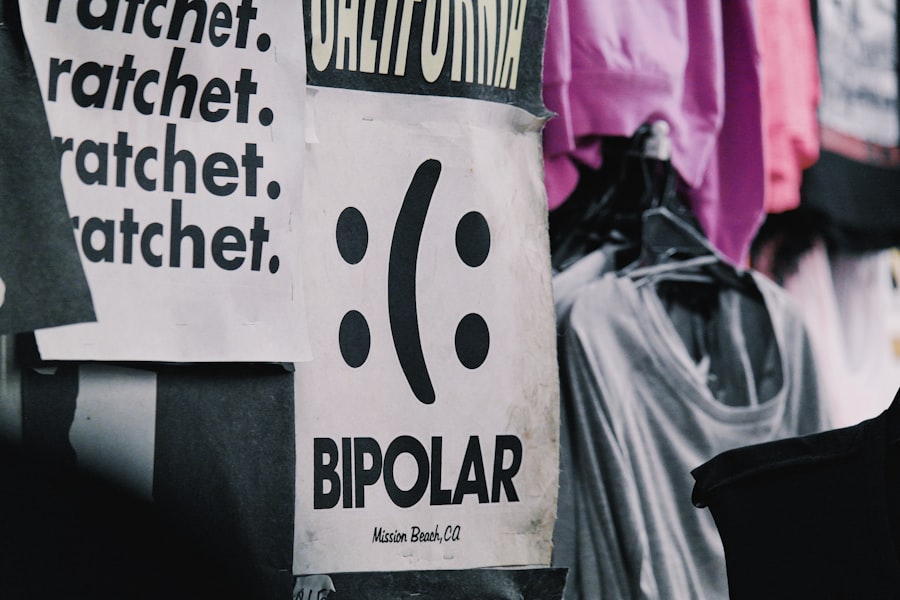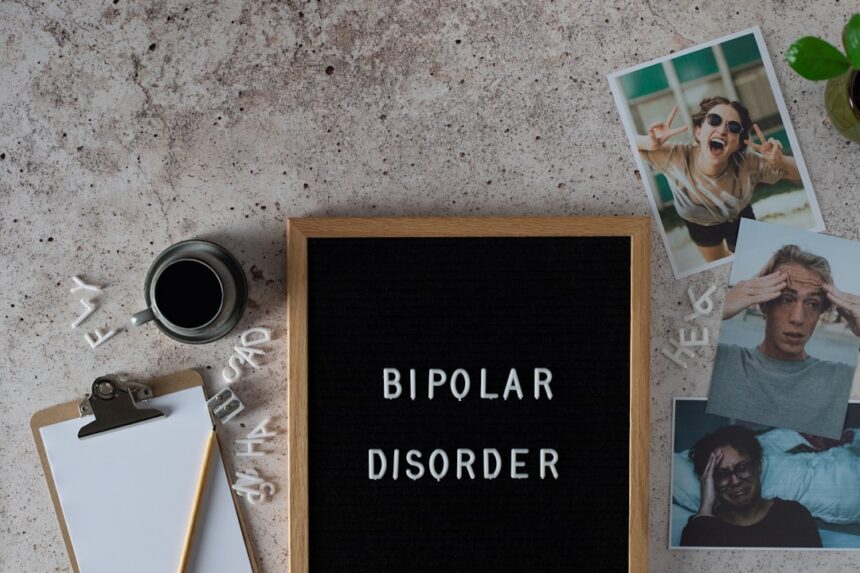Depersonalization is a psychological phenomenon where you may feel detached from your own thoughts, feelings, or sense of self. It can be as if you are observing yourself from outside your body, leading to a disconcerting experience that can be both frightening and confusing. This sensation often leaves you questioning your reality and identity, making it difficult to engage fully with the world around you.
You might find yourself feeling like a stranger in your own life, as if you are merely a spectator rather than an active participant. This experience can occur in various contexts, often triggered by stress, trauma, or anxiety. For some, depersonalization can be a fleeting experience, while for others, it may become a chronic condition known as depersonalization-derealization disorder.
In such cases, the detachment can interfere significantly with daily functioning and emotional well-being. Understanding depersonalization is crucial, especially if you or someone you know is grappling with these feelings, as it can pave the way for seeking appropriate help and support.
Key Takeaways
- Depersonalization is a mental health condition characterized by feeling detached from oneself or feeling like an outside observer of one’s thoughts, feelings, and actions.
- Derealization is a mental health condition characterized by feeling detached from the external world, as if things are unreal or distorted.
- Bipolar disorder is a mental health condition characterized by extreme mood swings, including episodes of mania and depression.
- There is a relationship between depersonalization and bipolar disorder, as depersonalization can occur during manic or depressive episodes.
- There is also a relationship between derealization and bipolar disorder, as derealization can occur during manic or depressive episodes.
- Symptoms of depersonalization and derealization in bipolar disorder can include feeling disconnected from oneself or the world, experiencing distorted perceptions, and having difficulty concentrating.
- Treatment options for depersonalization, derealization, and bipolar disorder may include therapy, medication, and lifestyle changes.
- Coping strategies for managing depersonalization, derealization, and bipolar disorder may include stress management, self-care, and seeking support from loved ones and mental health professionals.
What is Derealization?
Derealization is closely related to depersonalization but focuses more on the perception of the external world rather than the self.
You might feel as though you are living in a dream or that the world around you lacks depth and significance.
This altered perception can lead to feelings of isolation and confusion, as if you are disconnected from reality itself. The experience of derealization can be triggered by various factors, including extreme stress, anxiety, or traumatic events. It can also occur alongside other mental health conditions, making it essential to recognize its symptoms and seek help when necessary.
For many individuals, derealization can be a temporary response to overwhelming situations; however, for others, it may develop into a more persistent issue that requires professional intervention. Understanding derealization is vital for recognizing its impact on your life and finding effective coping strategies.
Understanding Bipolar Disorder

Bipolar disorder is a mental health condition characterized by extreme mood swings that include emotional highs (mania or hypomania) and lows (depression). These mood changes can affect your energy levels, activity levels, sleep patterns, and overall ability to function in daily life. During manic episodes, you may feel euphoric, full of energy, or unusually irritable.
Conversely, depressive episodes can leave you feeling hopeless, fatigued, and disinterested in activities you once enjoyed. The exact cause of bipolar disorder is not fully understood, but it is believed to involve a combination of genetic, biochemical, and environmental factors. If you have a family history of bipolar disorder or other mood disorders, your risk of developing the condition may be higher.
Recognizing the signs and symptoms of bipolar disorder is crucial for early intervention and effective management. With appropriate treatment and support, many individuals with bipolar disorder can lead fulfilling lives.
The Relationship Between Depersonalization and Bipolar Disorder
| Depersonalization | Bipolar Disorder |
|---|---|
| Feeling detached from oneself | Episodes of mania and depression |
| Associated with anxiety and trauma | Linked to genetic and environmental factors |
| May co-occur with other mental health conditions | Often misdiagnosed as depression or schizophrenia |
The relationship between depersonalization and bipolar disorder is complex and multifaceted. Individuals with bipolar disorder may experience episodes of depersonalization during both manic and depressive phases. During manic episodes, heightened emotions and racing thoughts can lead to feelings of detachment from oneself as the mind races ahead of the body.
Conversely, during depressive episodes, feelings of hopelessness and despair may trigger depersonalization as a coping mechanism to escape overwhelming emotions. Understanding this relationship is essential for recognizing how depersonalization can exacerbate the challenges faced by those with bipolar disorder. The feelings of disconnection can intensify the emotional turmoil associated with mood swings, making it even more difficult to navigate daily life.
If you find yourself experiencing depersonalization alongside bipolar symptoms, it’s important to discuss these experiences with a mental health professional who can help tailor a treatment plan that addresses both issues.
The Relationship Between Derealization and Bipolar Disorder
Derealization can also manifest in individuals with bipolar disorder, often as a response to the intense emotional fluctuations characteristic of the condition. During manic episodes, the heightened energy and altered perception may lead to feelings of unreality regarding your surroundings. Similarly, during depressive episodes, derealization can serve as a protective mechanism against overwhelming sadness or despair by creating a sense of distance from painful emotions.
Recognizing the interplay between derealization and bipolar disorder is crucial for effective treatment. If you experience derealization alongside mood swings, it may contribute to feelings of isolation and confusion about your reality. Addressing these symptoms within the context of bipolar disorder can enhance your overall treatment plan and improve your quality of life.
Open communication with your healthcare provider about these experiences is vital for developing strategies that address both derealization and mood regulation.
Symptoms and Signs of Depersonalization and Derealization in Bipolar Disorder

When navigating bipolar disorder alongside symptoms of depersonalization and derealization, it’s essential to recognize the signs that may arise during different mood episodes. Symptoms of depersonalization may include feeling detached from your body or thoughts, experiencing a sense of unreality about yourself, or feeling like an observer in your own life. These sensations can be particularly pronounced during depressive episodes when feelings of worthlessness or hopelessness may trigger a desire to escape from reality.
On the other hand, derealization symptoms may manifest as perceiving your environment as distorted or dreamlike. You might feel disconnected from people around you or find that familiar places seem strange or unfamiliar. These experiences can be disorienting and may exacerbate feelings of anxiety or depression during mood swings.
Being aware of these symptoms allows you to communicate effectively with mental health professionals about your experiences and seek appropriate support.
Treatment Options for Depersonalization, Derealization, and Bipolar Disorder
Treatment for depersonalization, derealization, and bipolar disorder often involves a combination of therapeutic approaches tailored to your specific needs. Psychotherapy is one of the most effective treatments for these conditions. Cognitive-behavioral therapy (CBT) can help you identify negative thought patterns associated with depersonalization and derealization while also addressing mood regulation in bipolar disorder.
Through therapy, you can develop coping strategies to manage symptoms effectively. Medication may also play a crucial role in treatment. Mood stabilizers are commonly prescribed for bipolar disorder to help regulate mood swings.
In some cases, antidepressants or anti-anxiety medications may be used to address co-occurring symptoms of anxiety or depression that contribute to feelings of depersonalization or derealization. Collaborating closely with your healthcare provider will ensure that you receive a comprehensive treatment plan that addresses all aspects of your mental health.
Coping Strategies for Managing Depersonalization, Derealization, and Bipolar Disorder
Coping with depersonalization, derealization, and bipolar disorder requires a multifaceted approach that includes self-care strategies and support systems. Mindfulness practices such as meditation or deep breathing exercises can help ground you in the present moment when feelings of detachment arise.
Building a strong support network is equally important. Surrounding yourself with understanding friends and family members who are aware of your experiences can provide comfort during challenging times. Additionally, joining support groups for individuals with bipolar disorder or those experiencing depersonalization and derealization can foster a sense of community and shared understanding.
In conclusion, understanding the intricate relationships between depersonalization, derealization, and bipolar disorder is essential for effective management and treatment. By recognizing symptoms early on and seeking appropriate help, you can navigate these challenges more effectively and work towards achieving a balanced life filled with meaningful connections and experiences.
Depersonalization-derealization disorder and bipolar disorder are both complex mental health conditions that can significantly impact an individual’s perception of reality and emotional stability. While depersonalization-derealization disorder primarily involves feelings of detachment from oneself and the surrounding environment, bipolar disorder is characterized by extreme mood swings ranging from manic highs to depressive lows. Understanding the interplay between these disorders can be crucial for effective treatment and management. For more insights into these conditions, you can explore a related article on the topic by visiting Unplugged Psych, which offers a wealth of information on various psychological disorders and their interconnections.
LEARN MORE About Depersonalization & Derealization
FAQs
What is depersonalization-derealization disorder?
Depersonalization-derealization disorder is a mental health condition characterized by feeling detached from oneself (depersonalization) and feeling detached from the world around them (derealization). These feelings can be distressing and may interfere with daily functioning.
What are the symptoms of depersonalization-derealization disorder?
Symptoms of depersonalization-derealization disorder may include feeling like an outside observer of one’s thoughts, feelings, and body (depersonalization), feeling like the world is unreal or distorted (derealization), emotional numbness, and a sense of detachment from one’s surroundings.
What is bipolar disorder?
Bipolar disorder is a mental health condition characterized by extreme mood swings that include emotional highs (mania or hypomania) and lows (depression). These mood swings can affect a person’s energy levels, activity, sleep, and behavior.
What is the relationship between depersonalization-derealization disorder and bipolar disorder?
There is evidence to suggest that depersonalization-derealization disorder and bipolar disorder may co-occur in some individuals. Research has shown that individuals with bipolar disorder may experience symptoms of depersonalization-derealization during manic or depressive episodes.
How is depersonalization-derealization disorder and bipolar disorder treated?
Treatment for depersonalization-derealization disorder and bipolar disorder may include a combination of medication, psychotherapy, and self-care strategies. It is important for individuals to work with mental health professionals to develop a personalized treatment plan that addresses their specific symptoms and needs.




